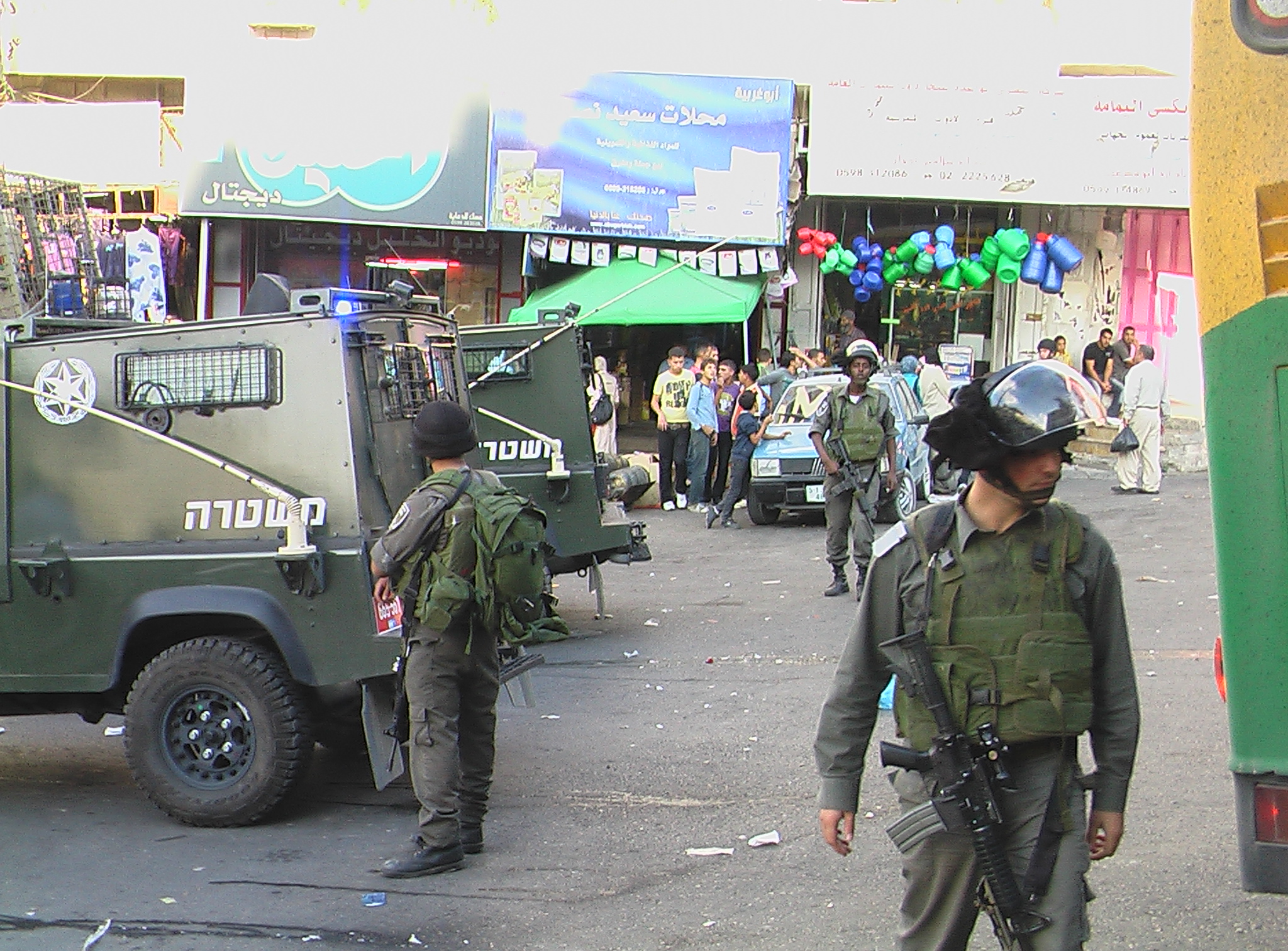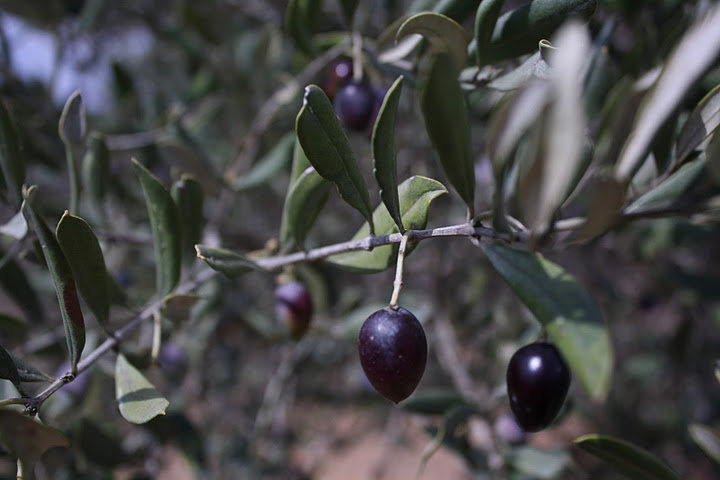Tag: Settlers
-
The colonial parade of Hebron
18 October 2011 | Free Paly A crowded Palestinian marketplace, mid-afternoon, the sun is slowly descending, and a cool breeze blows plastic bags past the feet of a jumbled crowd of young men, small boys, women in hijab with their daughters, and old men. They have gathered, this midday mass of Palestinians, with outstretched necks…
-
A land divided: Gate closures for Salim’s olive harvest by IOF
3 October 2011 | International Solidarity Movement, West Bank As Palestinians in Salim began the first day of their annual olive harvest this morning, October 2nd, Israeli Occupation Forces locked the gate which gives those living in Salim access to their olive trees. The gate was unlocked at 7:00am to allow farmers to reach their…


